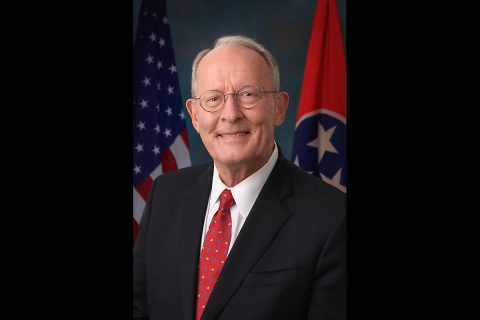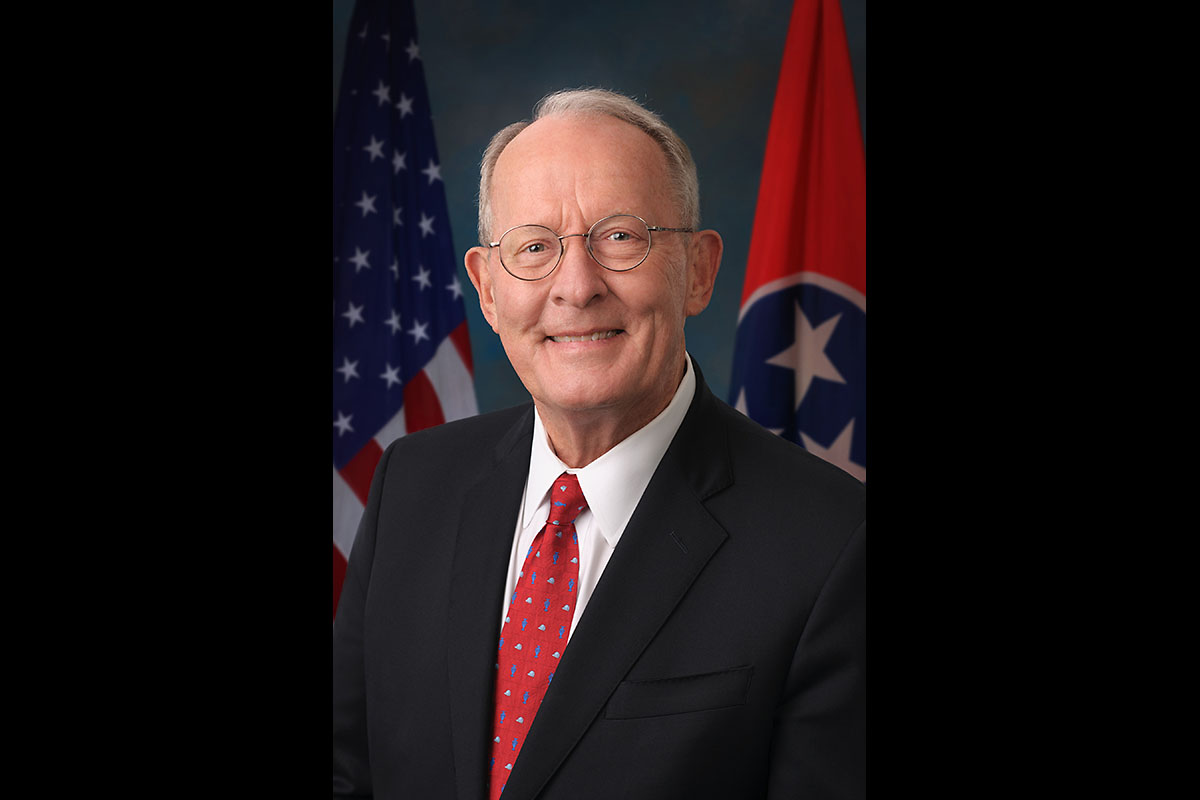 Washington, D.C. – U.S. Senator Lamar Alexander (R-Tenn.) yesterday afternoon on the Senate floor said, “We should not try to erase our history. We should not try to pretend it doesn’t exist,” in response to an effort by a crowd to tear down President Andrew Jackson’s statue in Lafayette Square in front of the White House:
Washington, D.C. – U.S. Senator Lamar Alexander (R-Tenn.) yesterday afternoon on the Senate floor said, “We should not try to erase our history. We should not try to pretend it doesn’t exist,” in response to an effort by a crowd to tear down President Andrew Jackson’s statue in Lafayette Square in front of the White House:
“Presidential historians almost without exception put Andrew Jackson in the top ten of America’s presidents. They see him as a sophisticated, often subtle political actor who without his devotion to the union, against his own local political interests, the union might well have fallen apart in 1832 or 1833,” said Senator Alexander.

“Jackson wasn’t born rich. He wasn’t born to privilege. He fought for everything he had, and he rose to our government’s highest office through the sheer force of personality and political courage. That is the case for Andrew Jackson,” Senator Alexander stated.
“Now, let us also recognize that Andrew Jackson was not perfect. In fact, he was at the center of the two original sins of this country – slavery and the treatment of Native Americans. But if we’re looking for perfection, we’re not likely to find it in American history or the history of almost any country or in human nature,” Senator Alexander said.
“What do we do about Thomas Jefferson, who only freed those slaves that he fathered with his slave mistress? What we do about George Washington and Mount Vernon, and the slaves that he owned? What do we do about Abraham Lincoln, who some people say was slow to act on emancipation? What about Franklin D. Roosevelt and his internment of Japanese-Americans in camps during World War Two?” stated Senator Alexander.
Senator Alexander continued: “What are we going to do about Congress — the senators and the members of the House? They approved the Trail of Tears – Andrew Jackson’s removal of the Cherokees to Oklahoma. And they approved the laws requiring segregation. And what about the people who elected them to Congress? What are we going to do about us, the people of the United States?
“Do we pretend we didn’t exist during that history when decisions were made that we would not make today or we would not approve of today – some of which would be abhorrent today? Do we try to burn down all the monuments – burn down Mount Vernon, burn down the Jefferson Memorial? Do we try to erase all that from our history? That’s not what we should do.
“We should not try to erase our history. We should not try to pretend it doesn’t exist. We shouldn’t ignore our history,” Senator Alexander said. “Doing any of this would be a terrible misunderstanding of American history and of human nature.”
“Here’s what I think we should do. Number one, as I said earlier, recognize that it’s always appropriate to review the places that we have named or the monuments that we’ve put up in the context of today’s times. Number two, with a history that includes mistakes we today abhor, we should try to learn from those mistakes and build a better future.”
“Each year I bring onto the floor of the Senate teachers of American history. I take them to Jefferson Davis’s desk, who resigned from the Senate and became president of the Confederacy. On that desk there is what looks like a chop mark. The story is that it was created by a Union soldier, who came into this chamber when the Union soldiers occupied Washington D.C. and began to destroy the desk until he was stopped by his commanding officer, who told him to stop because they were here to save the Union, not to destroy it. What should we do with Jefferson Davis’s desk these days? I say keep it there. I say to learn from it — to learn from the fact that there was a Civil War, that there was a Confederacy, that senators left this body to join it, and that Union soldiers were here. There are lessons in American history. There are lessons that we should learn. The lesson of Ben Hooks – that we’re a work in progress. That we’ve come a long way, but we’ve got a long way to go. Or of Samuel Huntington, that most of our politics is about setting high goals for ourselves – all men are created equal – and then struggling with the disappointment of not really reaching those goals.
Senator Alexander concluded: “In his first inaugural address, Abraham Lincoln appealed to the better angels of our nature. If there are better angels of our nature, I guess that means there must be worse angels in us as well – not just in Washington and Jefferson and Jackson and Roosevelt and great men or great women – but in all of us are the better angels, and the worse angels. And in this country, our goal is to bring out the best in us, which does not mean ignore the worst. We need to be honest about our weaknesses. We need to be proud of our strengths. We need to learn from both to create a better future for the United States of America.”
Click HERE for video of Alexander’s remarks.
Click HERE for a full transcript of Alexander’s remarks.



